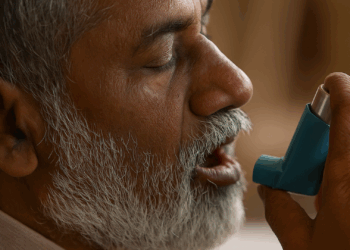It’s time to pause when you go, Achoo! Do not reach out for the Over the Counter (OTC) flu drops or down a spoonful of cough syrup for your cough. If you have blood pressure issues and are under medications, then you must think before doing so. Sometimes, we harm ourselves in the quest to help ease our health issues only because we are ignorant of some side effects some medicines can have. Many of these are regular OTC medicines that may not require a prescription, and we presume they are safe. But that is not always the case.
At least in India, we are aware people mostly request medicines from a chemist directly for ailments like fever, cold, cough, seasonal flu, etc. And no chemist ever asks you for the medications you are already taking. This negligence can be grave as there could be medicine interactions or highly harmful side effects we never expected. Hence, we may not even link the side effects to those meds we took. Here is a rundown of what some common cold and flu medicines can do to those with hypertension.
What happens?
Most cold and flu medicines will have decongestants. While they can relieve the cold and flu symptoms, they can also raise the blood pressure. Sometimes, they can also interfere with the effectiveness of your blood pressure medicines. It’s common knowledge in medical circles that decongestants are not safe for people with high blood pressure, but then, the majority of us are non-medical!
Decongestants help relieve cold and flu as they constrict the blood vessels in the sinuses. But they also constrict the blood vessels in other parts of our body, causing elevated blood pressure and heart rate. Some cold and flu medicines also have added sugar and alcohol. These ingredients can cause increased blood pressure.
Let’s dig a little deep. Usually, people with cold and flu take Nonsteroidal anti-inflammatory drugs (NSAIDs) that are good for alleviating pain, reducing inflammation and relieving symptoms. However, studies across the years have suggested that these increase the risk of hypertension and stroke and can cause heart attacks.
What’s the solution?
So, how can you ensure you only ingest safe cold and flu medicines? Here are some steps you can take.
1. Always consult a doctor for a qualified and updated prescription, even if it is a minor ailment. Your doctor will know your history and medications and will prescribe safe medicines.
2. If you purchase OTC medicines for emergencies, you can always request your doctor to provide you with an SOS/standby safe prescription. When you directly approach a chemist, purchase only these until you can get to a doctor.
3. If you cannot follow steps 1 and 2, inform the chemist about your hypertension and regular medications. Request him to give you OTC medicines that are safe for you. You can verify this with your doctor over a call or WhatsApp message.
4. Another option is to check the labels and combination of the medicines the doctor has prescribed for you and see if what you purchase OTC matches that or has extra ingredients.
As a rule, please monitor your blood pressure periodically. Please do it at least twice when you have flu and cold and take any extra medicines. This monitoring can help you know if your blood pressure is fluctuating. If you suspect the medicines are interfering, you must immediately consult the doctor. Knowing the possible dangers and taking some precautions can help you stay safe.

Join Now >










